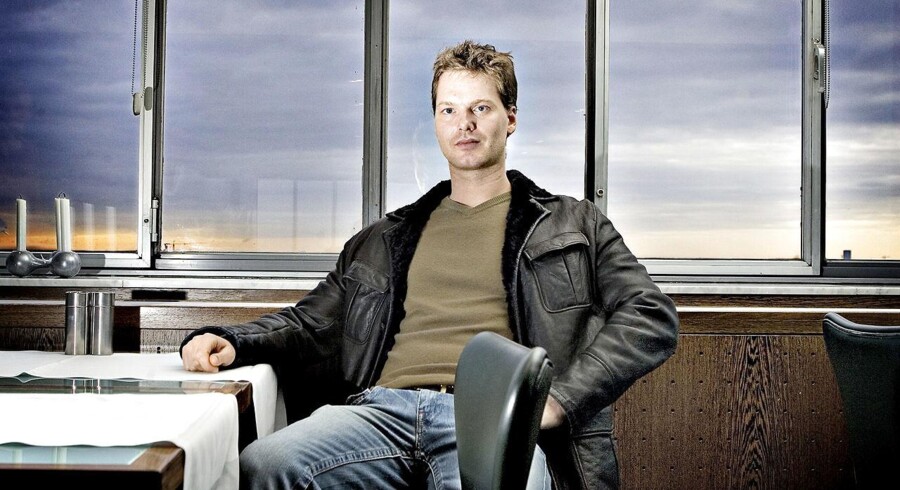
Janus Friis is a Danish entrepreneur known as the co-founder of Skype, a telecommunications application that provides video chat and voice calls between computers, mobile devices, smartwatches and the Xbox One console via the Internet.
Personal life
Janus Friis was born in Copenhagen, Denmark on June 26, 1976. Friis was engaged to Aura Dione, a Danish recording artist, but they split up in April 2015. As of 2012, Friis has a net worth approximately $1.3 billion.
Early career
Friis had no regular higher education, dropping out of high school before starting a job at CyberCity, one of the first Internet service providers in Denmark, as a help desk. Friis met Niklas Zennström in 1996. At that time, Zennström supervised Tele2 in Denmark, and Friis was hired to manage its customer support. The two worked together at Tele2 to launch get2net, another Danish ISP, and the portal everyday.com.
After this, Friis and Zennström chose to leave Tele2. In January 2000, Friis moved into Zennström’s small apartment in Amsterdam, where they started developing KaZaA, the company accountable for the most popular software for use with the FastTrack file sharing network protocol. In 2001, the two developed the FastTrack protocol.
Estonian programmers from BlueMoon Interactive built and developed KaZaA and FastTrack, including Jaan Tallinn, and sold to Zennström and Friis. The Dutch company Consumer Empowerment introduced KaZaA in March 2001, close to the end of the P2P networks’ first generation typified by the closedown of Napster in July 2001.
From KaZaA’s successful peer-to-peer technology, Friis and Zennström co-founded Joltid, a software company developing and marketing peer-to-peer traffic optimization technologies and peer-to-peer solutions to companies. Friis is also a co-founder of a network that sells commercial music to KaZaA users called Altnet.
Skype
First released in August 2003, Friis and Zennström founded Skype, in cooperation with Ahti Heinla, Priit Kasesalu, and Jaan Tallinn, Estonians who developed the backend that was also used in the music-sharing application Kazaa. On 29 August 2003, they released the first public beta version.
Funding
On January 1, 2002, Skype raised $250,000 in its angel round from Draper Richards. On August 1, 2003, Bessemer Venture Partners led the A round financing at Skype with an investment of $1 to $2 million; and Mangrove Capital Partners also joined in this round. On March 1, 2004, Skype raised $18.8 million in a Series B round, led by Index Ventures and DFJ, with existing investor Mangrove Capital Partners.
In June 2005, Skype began into an arrangement with the Polish web portal Onet.pl for an integrated offering on the Polish market. On 12 September 2005, eBay Inc. agreed to obtain Skype for nearly $2.5 billion in up-front cash and eBay stock, plus potential performance-based consideration.
On November 19, 2009, eBay published that it has closed the sale of Skype, valuing the company at $2.75 billion. The investor who is the buying party and will manage an almost 70 percent stake is a group led by Silver Lake Partners and includes Joltid, VC firm Andreessen Horowitz and the Canada Pension Plan Investment Board. On April 16, 2010, Skype raised $7.8 million in a venture round. On May 10, 2011, Microsoft Corporation acquired Skype for $8.5 billion. The acquisition was completed on October 13, 2011.
On July 14, 2011, Skype collaborated with Comcast to bring to Comcast subscribers its video chat service via HDTV sets. On June 17, 2013, Skype released a free video messaging service, which can be operated on Mac OS, iOS, Windows, BlackBerry, and Android. On August 2, 2017, Skype teamed up with PayPal to accommodate new money send feature. It lets users transfer funds via the Skype mobile app using PayPal.
Later Ventures
After selling Skype in 2005, Friis and Zennström pursued other interests, Joost, an Internet video service that they founded in 2006. Joost gave a wide variety of on-demand television shows from established broadcast and cable television content providers. However, it failed to become a serious rival to Netflix, Inc., YouTube, and Hulu in the Internet video market. In 2009, Friis and Zennström sold Joost to Adconion Media Group, an American online advertising company.
In 2006, the two founded an investment fund called Atomico Ventures that sought out European technology companies that had the future to be successful in the global market. In 2010, Friis and Zennström created a subscription-based music-streaming service, Rdio. In 2015, Pandora acquired the service’s key assets for some $75 million. Rdio also filed for bankruptcy protection as part of the deal. In 2014, Friis and Heinla founded Starship Technologies.
Awards
In 2006, Time Magazine named Friis as one of the 100 most influential people. In 2006 Friis acquired the prestigious award “IT-prisen” (“The IT Prize”) in his home country, given by the IDG and Danish IT industry, for his work and innovation. Friis and Zennström were also the co-recipients of the 2006 Wharton Infosys Business Transformation Award, given to individuals and business who have used information technology in a way that changed society or industry as a whole.